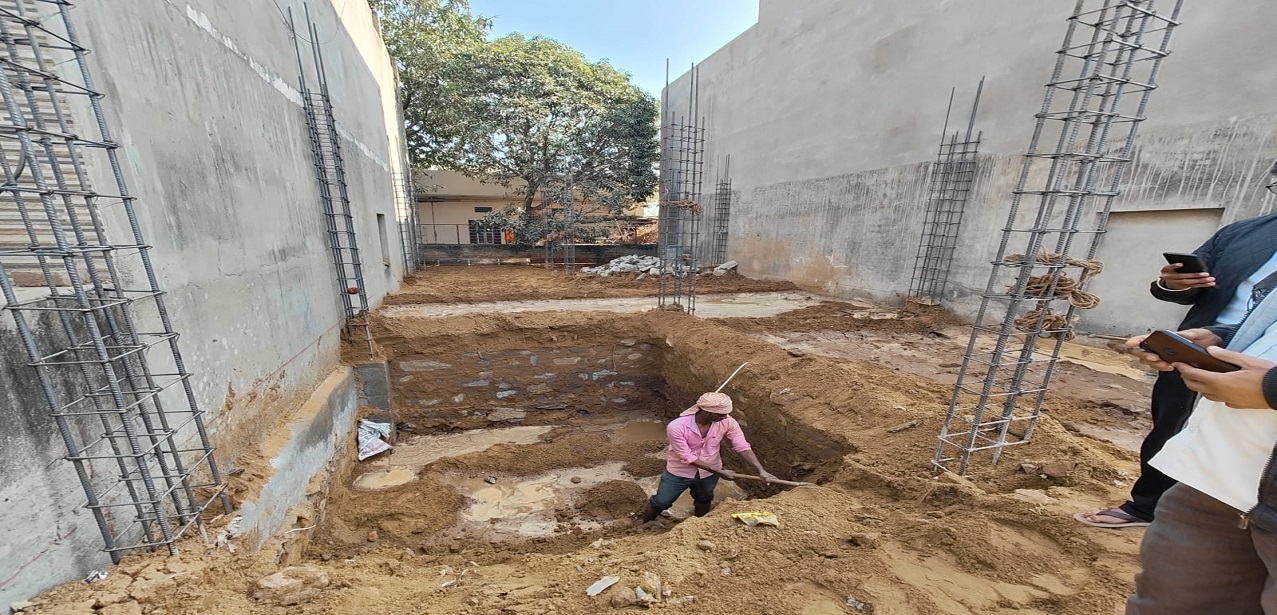Special Offers




Special Offers





What is Excavation? Excavation in home construction is the process of removing earth and debris from the construction site to prepare for building foundations, utilities, and landscaping. It involves digging, levelling, and shaping the land to accommodate the planned structures. Proper excavation ensures a solid foundation and efficient utility installation, setting the stage for the rest of the construction process. Importance of Excavation in Home Construction Excavation plays a pivotal role in home construction for several reasons. First, it establishes a solid foundation by removing unstable or unsuitable soil, ensuring the stability and safety of the structure. Additionally, excavation creates space for utilities like water and sewage lines, electrical conduits, and gas pipes. Properly excavated land also allows for proper drainage, reducing the risk of flooding or water damage. Overall, excavation is the crucial first step that sets the groundwork for a successful and durable home construction project Best Practices for Excavation in Home Construction in India Excavation is a critical step in the construction of any home in India. The success of your entire project depends on a well-executed excavation process. Here are some best practices to ensure a smooth and efficient land excavation: 1. **Survey and Marking**: Begin by conducting a thorough land survey to identify any potential issues like underground utilities, rocks, or water tables. Mark the boundaries and the intended location of your home. 2. **Legal Requirements**: Ensure that you obtain the necessary permits and permissions from local authorities. Compliance with local regulations is essential. 3. **Safety First**: Prioritize safety by following safety guidelines and providing proper protective gear for the excavation team. Keep the construction site secure to prevent accidents. 4. **Experienced Excavators**: Hire experienced excavators or contractors who understand the local soil conditions and potential challenges specific to your region. 5. **Clear Vegetation and Debris**: Remove vegetation, debris, and any obstructions from the site to facilitate smooth excavation. This ensures that the land is ready for digging. 6. **Proper Equipment**: Utilize appropriate excavation machinery and equipment. The choice of machinery depends on the scale of your project and the type of soil. 7. **Excavation Depth**: Dig to the required depth as specified in your building plans. Ensure uniform depth and avoid over-excavation, which can lead to unnecessary costs. 8. **Slope Management**: Pay attention to the slopes and ensure proper grading for drainage. This prevents water from pooling around your foundation, which can cause structural issues. 9. **Soil Management**: Set aside topsoil for later use in landscaping and gardening. Different types of soil should be stored separately for reintegration into the landscape. 10. **Quality Control**: Regularly inspect the excavation to check for any discrepancies. Address any issues promptly to avoid costly corrections later. 11. **Compaction**: Properly compact the soil to ensure stability. Inadequate compaction can lead to settling or subsidence, which may damage your home. 12. **Backfilling**: After utility installation, backfill the excavation with the right material and compact it again. This ensures that the site is level and ready for construction. 13. **Documentation**: Keep detailed records of the excavation process, including soil tests, permits, and any deviations from the original plan. 14. **Environmental Considerations**: Be environmentally responsible by disposing of excess soil and debris in an eco-friendly manner. This could involve reusing or recycling materials. FAQs about land excavation in home construction 1. **Do I need permission for land excavation in India?** In India, you typically need permission from local authorities to carry out land excavation for home construction. The specific requirements and permits vary by location, so it's essential to check with your local municipality or development authority. 2. **How deep should I excavate for the foundation of my home?** The depth of excavation for your home's foundation depends on the type of soil and the structural requirements of your building. Generally, it ranges from 3 to 6 feet, but it's crucial to consult with a structural engineer or architect to determine the appropriate depth for your specific project. 3. **What are the common challenges during excavation in India?** Common challenges during excavation in India include the presence of rocky terrain, high water tables, and varying soil types. These factors can affect the excavation process and may require special techniques or equipment. 4. **How can I ensure proper drainage during excavation?** Proper drainage is crucial to prevent water-related issues in your home. It's essential to grade the land to ensure water flows away from your foundation. Additionally, installing drainage systems, such as French drains or sump pumps, may be necessary in areas prone to waterlogging. 5. **What is the role of soil testing in excavation for home construction in India?** Soil testing is essential to assess the soil's composition and bearing capacity. It helps determine the type of foundation required, the depth of excavation, and the need for additional soil stabilization measures. Soil tests ensure that your home's foundation is stable and safe. Always consult with local construction experts and authorities to address specific questions and concerns related to excavation for Conclusion: In summary, proper excavation is a foundational step in building your dream home in India. By following these best practices, you'll ensure a safe, stable, and efficient excavation process that sets the stage for a successful construction project. Always consult with professionals and local experts to tailor these practices to your specific location and project requirements.
Explore the key steps of Home Construction from concept to completion